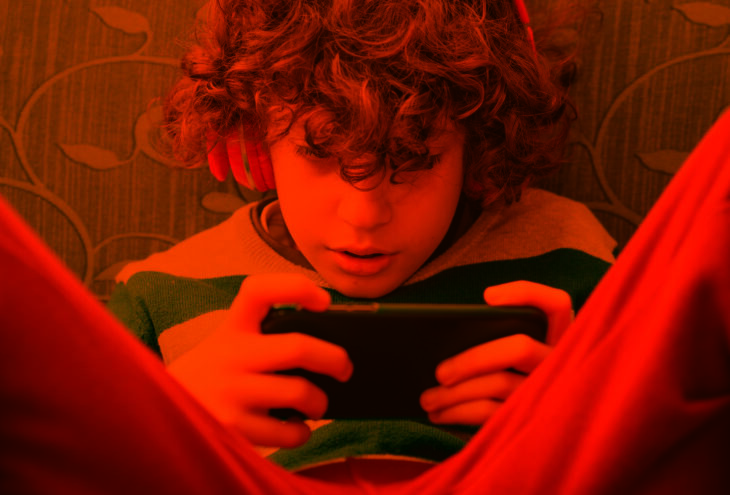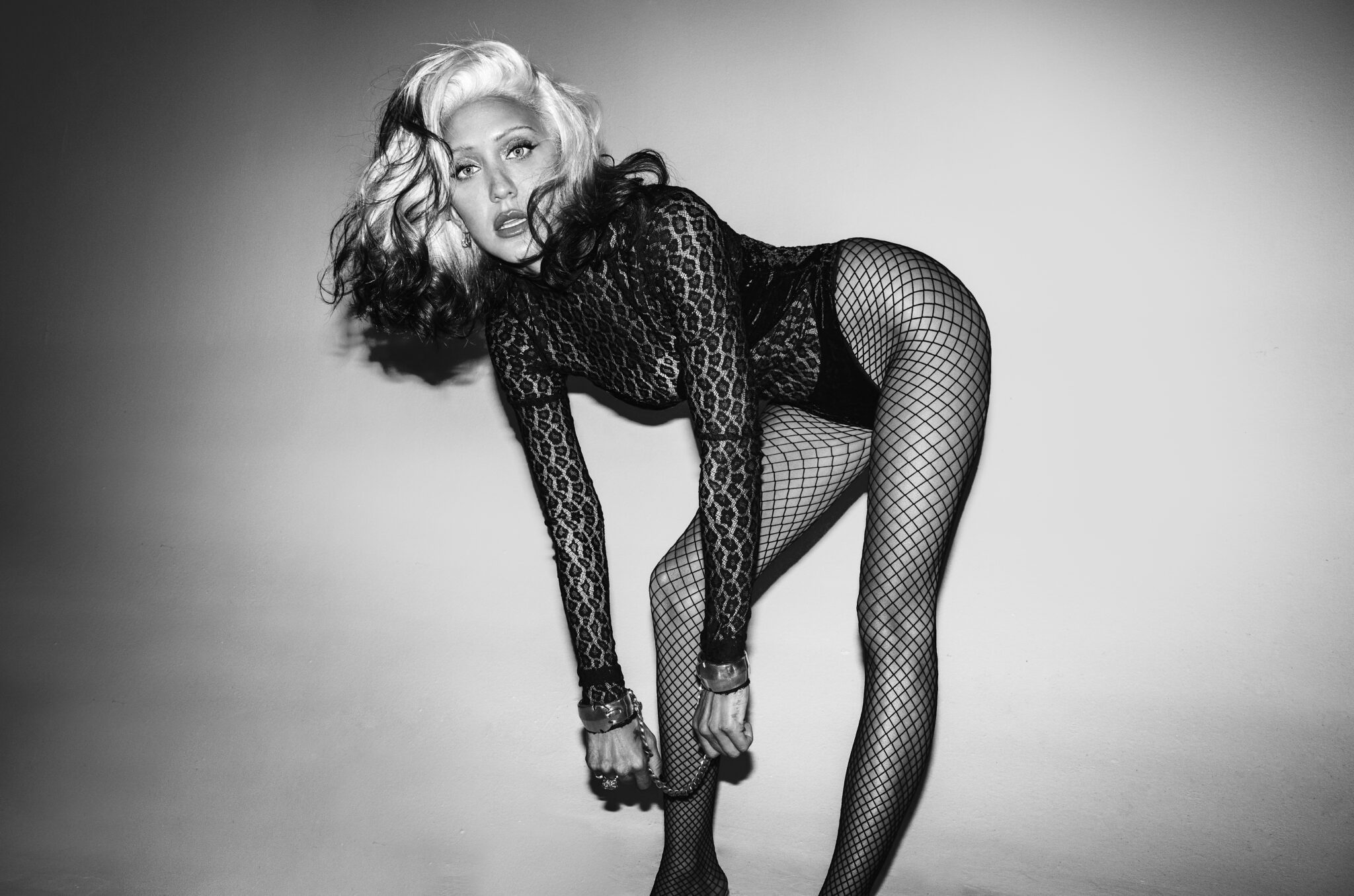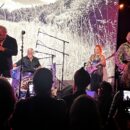Financial analysts expect the video game industry to pull in more than $522 billion
worldwide this year alone, and developers are increasingly interested in creating lusher and more expansive scores. We chatted with four artists exceling in video game composition to gain insight
into how making music for interactive entertainment really works.
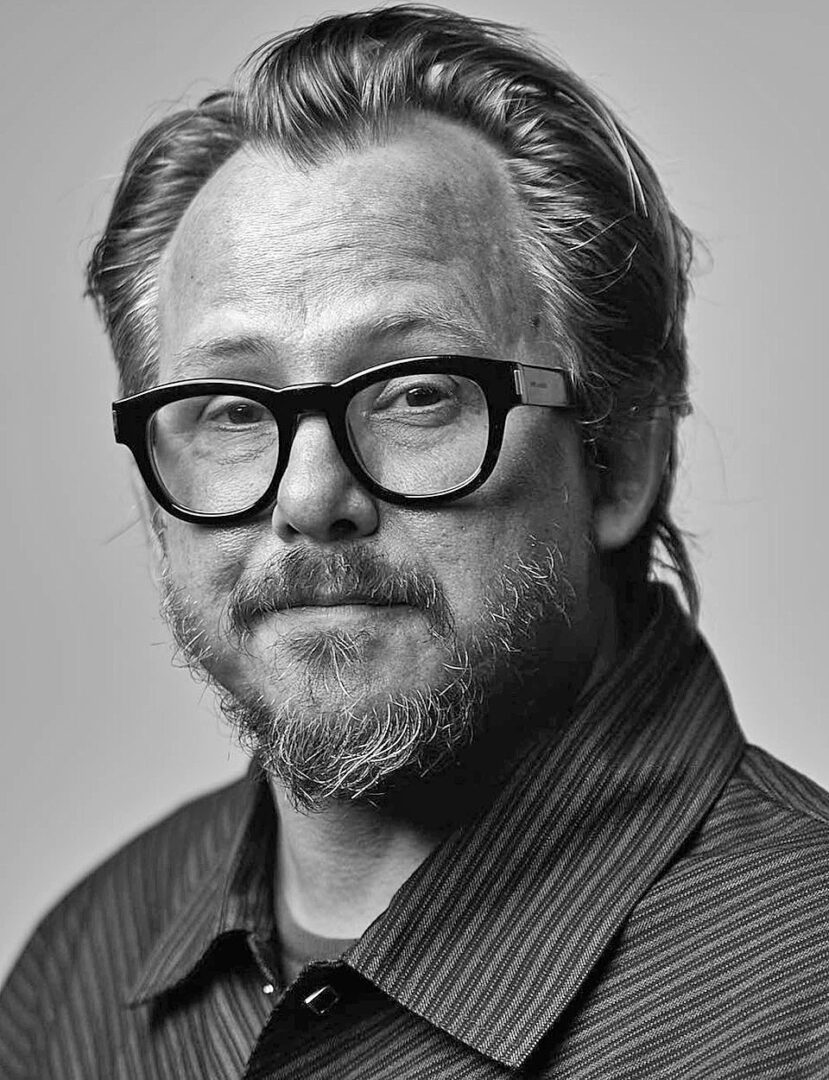
Woody Jackson
Web: woodyjackson.com
Notable Works: Grand Theft Auto V, Red Dead Redemption, Red Dead Redemption 2, L.A. Noire
Tell us about the art of creating music for video games.
When I started, there weren’t a lot of rules. I was playing on a lot of film and TV stuff for other composers. And I knew this company, Rockstar [Games]. I knew of Grand Theft Auto. They were doing a new game [Red Dead Redemption,] a western. That just came as a great opportunity. I kind of went overboard, writing 15-minute loops. I know from playing games that, if you hear it looping, it takes you out of the vibe. That’s always a problem.
A lot of it was experimentation. It’s great when you work on something and it’s never been done. You have to have themes and variations on themes. But you also have to have energy. Working with musicians always brings the energy, sometimes too much. You have to figure out how to make them play less, because it’s not a performance. It’s something that’s supporting visuals.
It’s crazy the quantity of music you have to put out.
I think Red Dead Redemption 2 was at least 40 hours, which sounds unfathomable. But then again, it was over a period. It is a bit of back and forth, because you are writing for a company. Everyone has to be pleased, and everyone has an opinion. So you have to deal with that. My assistants would get upset with the process of working for a company where there are revisions. I always looked at it as, well, those two weeks we spent recording, that’s the fun part. The rest of it’s a job.
How much freedom are you normally allowed to create whatever you want?
With Rockstar, I was allowed anything, really. After that, I worked on another game that needed more music than was already recorded. I ended up working on it in a month by myself. And then I asked if I could be part of Grand Theft Auto V. They said no, but I had to ask. Probably six months later, I got a call—“We need your help.” It was great to work on such a seminal game.
I was kind of known for problem solving. I guess my brain works in a strange way, but it would keep me going. “What would it be like if this person played with this person?” I remember having a recording where I thought, “What if I had James Gadson and Joey Waronker playing drums together?” Or, “What if I had Mike Watt and Mikey Shoes [Michael Shuman] from Queens of the Stone Age playing bass with Jon Theodore playing drums?”
In a conventional recording, nothing’s separated, or it’s separated enough but there’s bleed. In video games, I always have to think of the least amount of bleed, because you might have to drop it down to one instrument. When I started, I was recording in my house. I remember turning in some upright bass stuff. They got back to me and said, “It sounds great, but we hear birds in the background.” So I rerecorded that. It’s these problems you don’t really think about with movie composing.
Is writing music for video games becoming easier or harder?
Everything’s becoming easier. A.I. tools are great, but I still love the human aspect of things. To give an example, on the first Red Dead Redemption you went into a bar and there was a guy playing piano. And when technology got better, people were like, “We’re going to use a MIDI piano and have any song you want.” I stepped back and said, “The human element’s being taken out. Are you going to make it play Jay-Z songs?” Two weeks later, a TV show called Westworld came out where they had Nirvana songs on a player piano. That’s always going to be a fight with technology. Hopefully, there are still people battling to keep it human.
What are your recommendations for composers who want to write music for video games?
They say do it for love, but you have to make money. I didn’t approach it that way. I looked at it like—this is an outlet where I could contribute. I was lucky enough to play with Ry Cooder. I was in his son’s band. We used to rehearse at Ry’s house. Joachim [Cooder] would give me one of Ry’s soundtracks every week, because I told him I was into it. I remember telling Ry, “This one song you wrote is the best bath-taking music I’ve ever heard.” It got into my head—what would be the best music for taking a bath? People thought it was a joke, but I really was like, “I’ve got the best bath-taking music for this part.” Those are the things you should think about, not, “I want to write music for video games.” It’s, “Maybe my music would fit in this.”
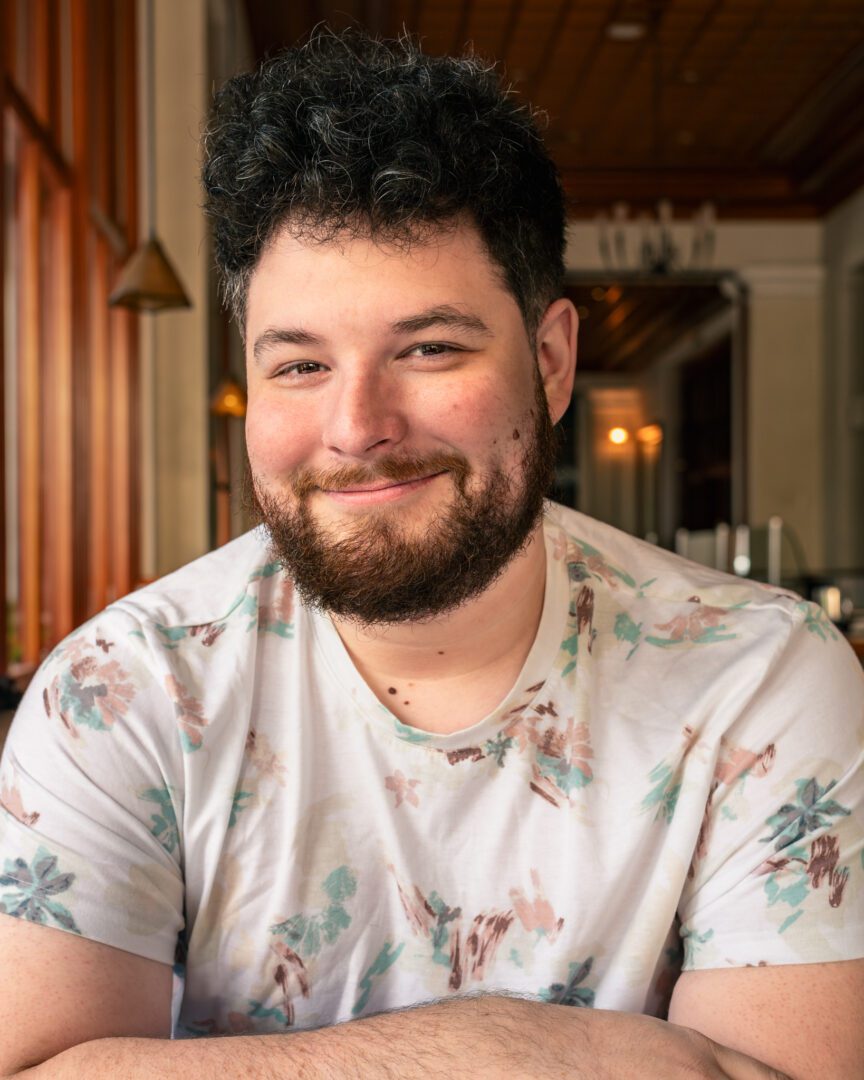
Mason Lieberman
Web: masonlieberman.com
Notable Works: Overwatch 2, Playerunknown’s Battlegrounds Mobile, League of Legends: Wild Rift, Royal Match
How did you learn the art of creating music for video games?
Scoring video games is a bit like solving an audio Rubik’s Cube. We’re not just thinking in terms of the linear narrative experience. It’s exciting to dive into as a creative process. I started learning video game scoring at Berklee College of Music from Michael Sweet, who had what I believe is the first video game scoring curriculum in America.
Was the goal always to compose for video games?
Oh, yeah. My dream gig as a kid was getting to work on a Nintendo game. And I didn’t realize that composition was a job. I just knew I liked music. I started playing cello when I was five years old. I made my debut at Lincoln Center at 13. So I’ve been playing for a long time. But as I got toward college, composition became a real thing I could pursue and that became my focus.
How much freedom are you normally allowed to create whatever you want?
It’s always a conversation with the rest of the creative and development team. Sometimes they’re very particular, and to a certain degree it’s about solving within those confines. But some developers are excited by the idea of working with an artist and telling them, “You tell us what you think this should be, and we’ll figure out how to make that work within our gameplay design.” Ultimately, the answer is it varies a lot.
So every situation is different?
At the end of the day, you are working on someone else’s game. You’re not the game director. You’re the composer. That means someone else’s vision is more important than yours. The odds are they trust you to have a meaningful say and impact what they’re trying to do. But if your director says, “That’s not right. Do it again,” you say, “Okay, sounds good.”
Is there a genre of game you like to work in?
I don’t know if there’s one specific kind that beats everything else. One of the things I love about games is we have so many different types that every project has unique challenges I’ve never had to confront prior.
How do you learn to work with a team?
Whenever you’re working in media scoring, and especially in games, you are probably working with people who do not understand music at a fundamental level. It is your job as a composer to understand how to communicate, rather than expect them to communicate with you in musical terms. I don’t need my game devs to say, “I want something a bit like [Claude] Debussy here,” and “I want this section in melodic minor,” or “In this section, I want you to bring the ostinato out.” All I want is what the player is supposed to feel. Tell me what the experience is. Show me the game design documents. Show me what it is we’re trying to get the players doing. And I will figure out the best solution.
What do you need to know to understand game design documents?
Some are incredibly detailed. They might be hundreds of pages. For others, it’s a PowerPoint and a prayer. But the goal is always that you’re trying to break out what is fundamental to the game. Being able to understand game design, having an understanding of programming or art or the other major disciplines across game dev, all that stuff can help for better perceiving your place as the composer.
Is writing music for video games becoming easier or harder?
In many cases, it has become easier, as the toolsets have evolved to make certain things simpler. Maybe the production standards and expectations are higher. You’re not just working with General MIDI or mod files. You’re working with live audio and recording ensembles. You also have to be a great orchestrator and producer. You have to have a fundamental understanding of music implementation. There are a lot of things you could probably get away with being worse at 15 or 20 years ago that now you just won’t get hired if you don’t have that skillset.
I would think the hardest thing is creating the amount of music you need for video games.
Honestly, I don’t consider it one of the bigger challenges, mostly because at the exact same time that the scale of games has been ballooning so have the development cycles. Twenty years ago, a game might be produced in nine to 18 months. Now, we have major titles that are going on 10 years. I find that video games have a bit more of a relaxed development cycle in terms of music compared to most other forms of media.
What are your recommendations for composers who want to write music for video games?
Start writing for games. I know that sounds silly, but there are many opportunities if you know where to look. There are game jams just about every weekend, where random people come together and create games. And because there are so many games getting made, there are more composers than ever looking for assistants, additional writers, or people who’d be able to help. So start scoring video games and meeting people who work in those spaces. Come to events like GameSoundCon, GDC [Game Developers Conference,] High Score in Australia, or Devcom [Developer Conference, now renamed Gamescom Dev].
Of all the projects you’ve worked on, do any have a special place in your heart?
One of the most emotionally resonant is an upcoming title for THQ Nordic, The Eternal Life of Goldman. It’s the first time I ever got to write music that was resonant with my religious upbringing. Overwatch 2, every time they call me, it’s for the funniest, craziest shit. I love those opportunities. Apex Legends Mobile, that was the first project that I was music directing for Tencent, so that was special. At the same time, it hurt when that project got cancelled. I realized how impermanent these live service projects can be. If they disappear, they’re gone forever.
Sometimes, they don’t even come out.
If you were to ask most game composers what is the coolest project you’ve ever worked on, nine out of 10 would say, “I can’t talk about that; it was cancelled.” For me, the coolest project I’ve ever been part of I will never be able to talk about in a meaningful capacity.

Eimear Noone
Web: eimearnoonemusic.com
Notable Works: World of Warcraft: Warlords of Draenor, World of Warcraft: Mists of Pandaria, Runes of Aran
How did you learn the art of creating music for video games?
My background is classical, with a whole lot of traditional Irish music thrown in. But what I really loved was music that told a story or made you feel something viscerally without explaining anything. So I studied film scoring alongside my traditional studies. I wasn’t so aware of orchestral scores in video games yet.
Asking how you learn to write video game music is like asking how you learn to write your name. At this point, I can’t remember how I learned. I’ve been doing it since I was a kid. It’s about finding your voice and the right collaborators. And the best collaborators are artists who take you somewhere that you wouldn’t have gone on your own and stretch you creatively.
Did you aim to get into video game music or was it an opportunity that opened up?
All I’ve ever thought about is the music. Communicating with people—that’s what it’s about for me. I never said, “I want to write video game music.” I was totally focused on the music. That’s my job. I’m horrible at networking. Conventions are overwhelming. I give people advice—go to the conventions, shake hands and meet all the people, things that I’ve never done and never will.
Does the skill of conducting help you with video game composition?
It absolutely does. There are things I’m thinking when I’m writing for a game. Could we perform this on stage? I also conduct the music of friends and colleagues. I get to know them on a different level. I have to memorize their music. I’m looking at every detail. That’s special, because it’s a tight knit community. I’m constantly looking at different styles of orchestration, at different styles of composition. The other thing is, when I’m writing, sometimes I’m visualizing the players playing. Conducting brings a different dimension to the headspace when you’re scoring a game.
How much freedom are you normally allowed on a project?
That depends on your team. Also, what is the sound of the game? Is it orchestral? Is it electronic? We started a game a couple years ago that we thought was going to be orchestral, and [my husband] Craig [Stuart Garfinkle] and I really got into it. We work together on everything. We both went, “I don’t think this is an orchestral score.” So it became a guitar-based, electronic score with some solo instruments. We had a lot of freedom on that game. The team trusted us a lot. They had great notes. When you get great notes from a team, you’ve got a certain amount of freedom to be an actual, expressive artist. That’s what we live for.
The great thing about working in games is the deadlines aren’t as intense as film. And it’s much more collaborative. There’s much more interaction with the audio team. You get to build a work family. And depending on the game, there can be a lot more music.
What are the skills you need to work with a team and interpret a game director’s vision?
You need to listen with an open mind and the perspective that these guys have been working on this forever. This is their baby. We’re trying to interpret musically what they don’t know they’re hearing yet, what’s going around in their heads, and give it voice. So interpersonal skills where you can take your ego out of it and be empathic for the game designers.
Is writing music for video games getting harder or easier?
Both are going to happen in different ways, with the advent of A.I. It’s going to get easier and harder at the same time. I don’t want to say how I think that’s going to happen, because I don’t want to give anyone ideas. I want composers to remain employed, thank you.
What is your advice to people who want to get into video game composition?
Arm yourself to the teeth with skills. But keep your eyes and ears open for new technologies and where the industry is headed. Also, keep the live side of your work going. Take a 360 [degree] approach to your career. Get out there and put a human face on things, because we’re going to need that. We’re going to have to step out from behind the curtain a bit. That’s our only insurance against artificial intelligence.
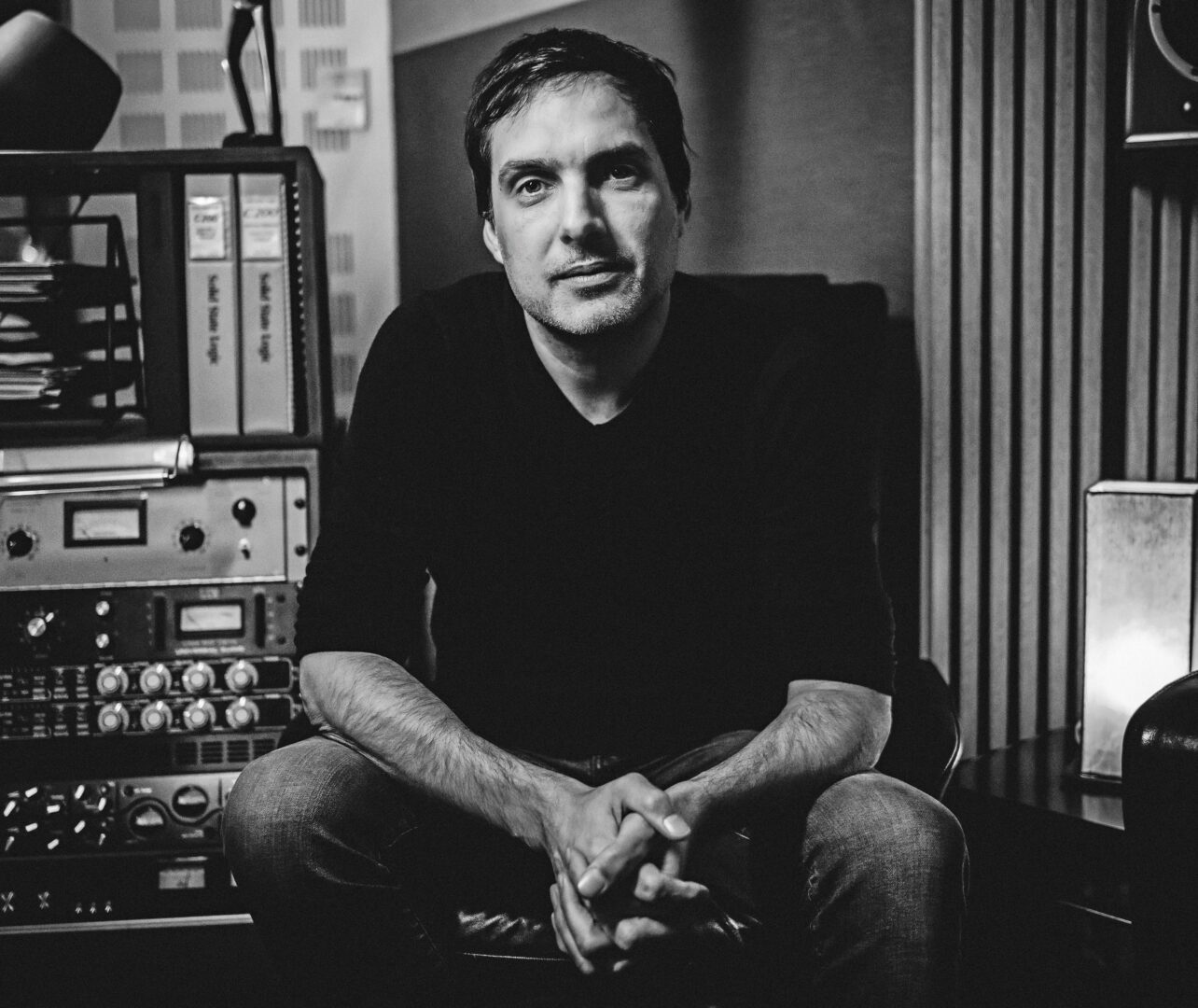
Olivier Derivière
Web: olivierderiviere.com
Notable Works: South of Midnight, Alone in the Dark, Remember Me, Streets of Rage 4
How do you learn the art of creating music for video games?
I love video games. And game design is the core of every game, what will make the game fun. A composer writing music for games should focus on the game design aspects. Music design is—what is your game play loop? What can we do with music to help this game play loop become more immersive and rewarding?
Look at the first Mario Brothers [Super Mario Bros.] In this game, you have [does Super Mario theme]. Then, the music switches to indicate something’s changing. And there’s a timer; if you’re getting close to zero, the music accelerates. That’s music design. When I was a kid, this is what I wanted to do.
How much freedom are you normally allowed on a project?
Full freedom. And you know why? It’s because the way I work with people puts me close to the game. I understand what the game is about. We’re making the game together. They see me as part of the team. My role is to translate whatever ideas they have, enhance them into music, and make that work within the game. The freedom is full as long as I collaborate and celebrate the vision.
What are the skills you need to work with a team and interpret a game director’s vision?
My role is to listen. I’m not here to impose. And when I understand enough, I can start offering things. Most of the time, there’s a sense of surprise. “I didn’t expect this.” But a few moments later, they’re like, “It’s exactly what this game needs.” The one thing I never talk about with them is music. I’m talking about intentions. It’s much easier for them.
Is writing music for video games getting harder or easier?
It depends on the composer, approach, and experience. Technological progress makes it much easier for somebody like me. You can have reverb, EQ… You can change the music in real time. For some, that’s terrifying because they’re like, “I just write music.” For these people, it must be even harder to look at what you can do. But for somebody like me, this is party time.
I’m frustrated, because I know what we can do with music. I know the possibilities. What are gamers looking for? The next wow thing. Wow, the graphics. Wow, the physics. Wow, the A.I. This is what gamers want. They want games to provoke something they’ve never felt or experienced. But of course, [doing something new] requires more time, more budget. It’s much easier if you just compose music and send it over. You can do 30 games a year, whereas I only do two or three.
Is the best way to learn the necessary skills to start composing for video games? Or do is it better to go to school first?
I don’t know. Schools can be good. It depends what they teach and how they teach it. We live in a world where there is enough on the internet for you to learn so much. This is crazy, the amount of documentation, shared tutorials, and the tools themselves. Wwise and FMOD are free to download and use. In the end, it’s on you. Everything’s possible, as long as you’re willing and persistent.
What is your advice to people who want to get into video game composition?
Be interested in games. [Young composers] come into the video games world, and the video games world is like, “Okay, what’s the gameplay?” “What are the parameters?” “How can we set up this?” You need to understand what they’re saying, because at some point someone will say, “Oh, it’s like Elden Ring.” It facilitates a lot of communication. And focus on understanding the tools.
I played the A Plague Tale games. It must have been great composing for a game featuring rats.
People think games are about killing zombies or whatever. [The A Plague Tale] games are about death. They’re about acceptance, grief, disease, insanity… They’re very deep in meaning. I like to talk about the human condition with my music. It’s weird to see the way video games are seen as violent and encouraging kids to do bad things. But I love that people look down on us, because this is the only way we can be creative. Let them believe we’re just kids having fun so we can do our own thing.

